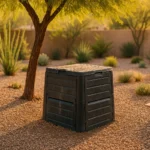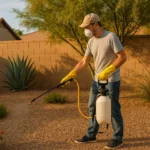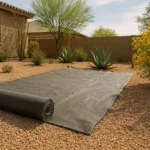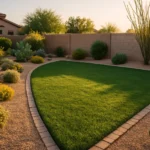Dealing with compost in extreme heat can be challenging, especially in a city like Gilbert where the summer temperatures regularly skyrocket. But worry not, by understanding and applying the right techniques, you can make composting in extreme heat a seamless process. Let’s delve into the intricacies of compost troubleshooting in scorching temperatures.
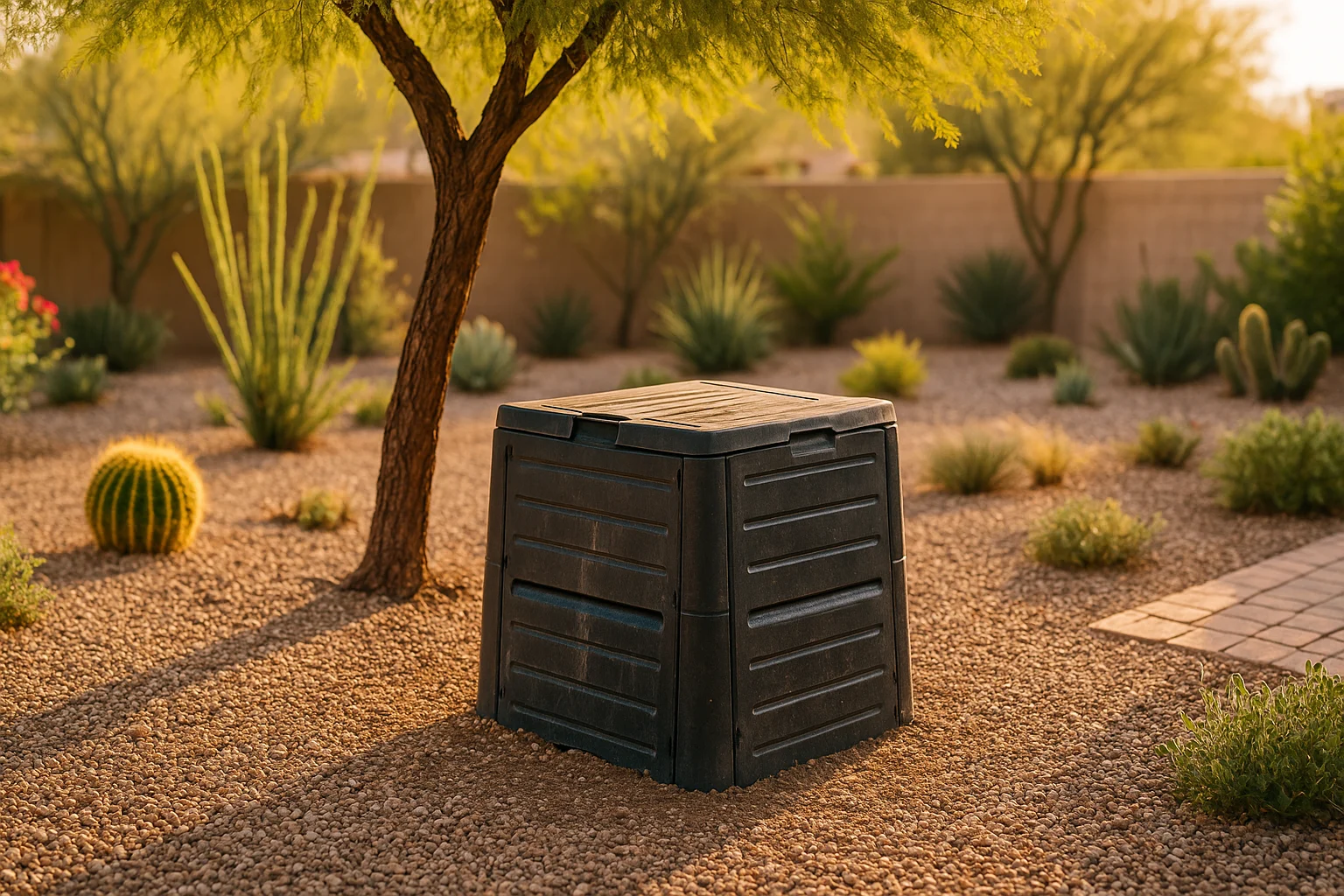
Understanding the Impact of Extreme Heat on Composting
Extreme heat can significantly affect the composting process. While composting requires heat to break down organic materials, too much heat can cause problems. It can dry out the compost pile, making it difficult for the microorganisms to survive and perform their job of decomposing the organic matter. If your compost pile is too dry, it’ll become inactive, resulting in a slow decomposition process.
Gilbert’s sweltering summer temperatures can amplify these challenges. The city’s average high temperature in July is around 106°F, which can make composting particularly tricky. But, by employing smart composting strategies and understanding the science behind it, you can successfully navigate the hurdles posed by Gilbert’s extreme heat.
Keeping Your Compost Moist
One of the primary solutions to composting in extreme heat is ensuring your compost pile remains moist. This can be achieved through regular watering. However, remember that your compost pile should be as wet as a wrung-out sponge. Overwatering can lead to a lack of oxygen, which can slow down the decomposition process and lead to foul odors.
In Gilbert’s heat, your compost pile can dry out quickly. Therefore, check it regularly, especially in the summer months. If it feels dry, add water gradually and mix it well to distribute the moisture evenly. A well-moistened compost pile will provide a conducive environment for microorganisms to thrive and decompose the organic matter efficiently.
Creating a Balanced Compost Pile
A balanced compost pile, consisting of green and brown materials, is crucial for effective composting. Green materials, such as vegetable scraps, grass clippings, and coffee grounds, provide nitrogen. Brown materials, like dried leaves, straw, and cardboard, provide carbon. A good rule of thumb is to maintain a ratio of 2:1 of brown to green materials.
In extreme heat, this balance is even more critical. Too much green material can heat up the compost pile excessively, while too much brown material can dry it out. Striking the right balance can help maintain a healthy compost pile that decomposes efficiently, even in Gilbert’s intense summer heat.
Shading Your Compost Bin
Another effective strategy for composting in extreme heat is to shade your compost bin or pile. Direct exposure to sunlight can result in excessive evaporation, causing your compost pile to dry out. By providing shade, you can help maintain the moisture levels in your compost pile and also control its temperature.
You can shade your compost bin by placing it under a tree or using a shade cloth. Remember to choose a location that doesn’t interfere with your daily activities but is still accessible for you to add materials and turn the compost pile regularly.
Turning Your Compost Pile Regularly
Regularly turning your compost pile can help maintain its health, especially in extreme heat. Turning the compost pile helps to aerate it, providing the necessary oxygen for the microorganisms. It also aids in distributing moisture evenly and helps cool down the compost pile by releasing built-up heat.
In Gilbert’s scorching summer months, consider turning your compost pile more frequently, maybe once or twice a week. This will prevent it from overheating and drying out, ensuring efficient decomposition.
Seeking Expert Advice
If you’re still facing difficulties with composting in extreme heat, don’t hesitate to seek expert advice. There are numerous resources available online and in your local community. The University of Arizona Cooperative Extension is a great place to start. They offer extensive information on composting, including tips for composting in Arizona’s extreme heat.
Additionally, you can check out our blog posts on Mulching 101 for Gilbert: Save Water and Beat the Heat and Is Your Compost Pile Too Hot? Fix It Fast for more in-depth guidance on maintaining a healthy compost pile in Gilbert’s heat.
Conclusion
Composting in Gilbert’s extreme heat may seem daunting, but with the right strategies and understanding, it’s entirely possible to maintain a healthy and active compost pile. By keeping your compost moist, creating a balanced pile, providing shade, and turning it regularly, you can ensure efficient decomposition. Remember, every challenge is an opportunity to learn and grow. So, embrace the heat, and happy composting!

